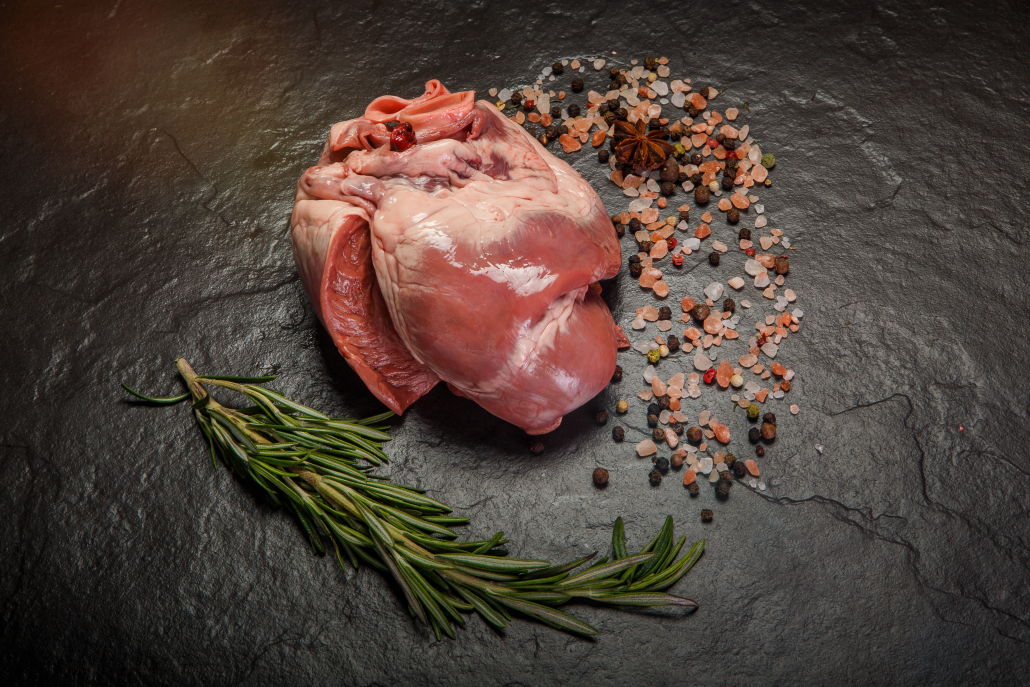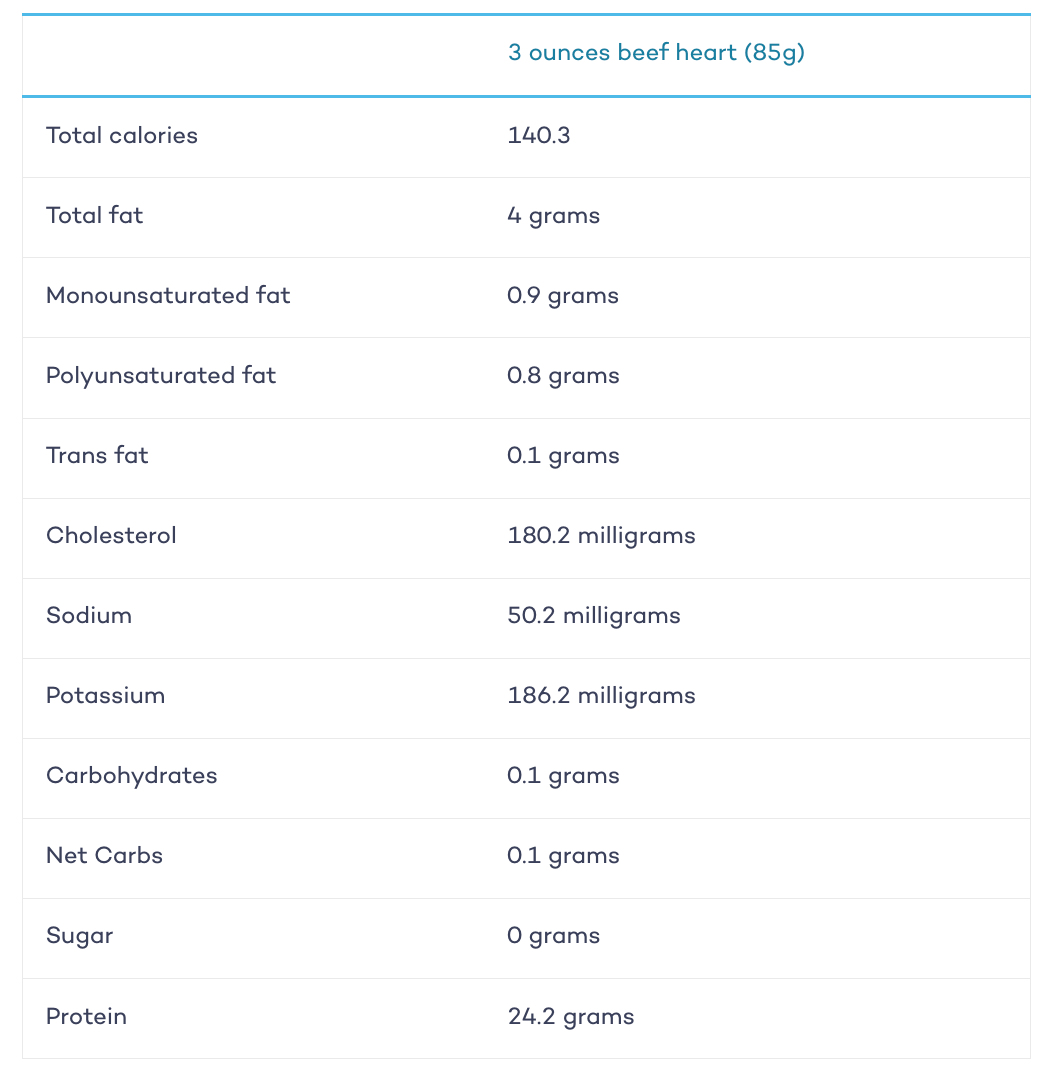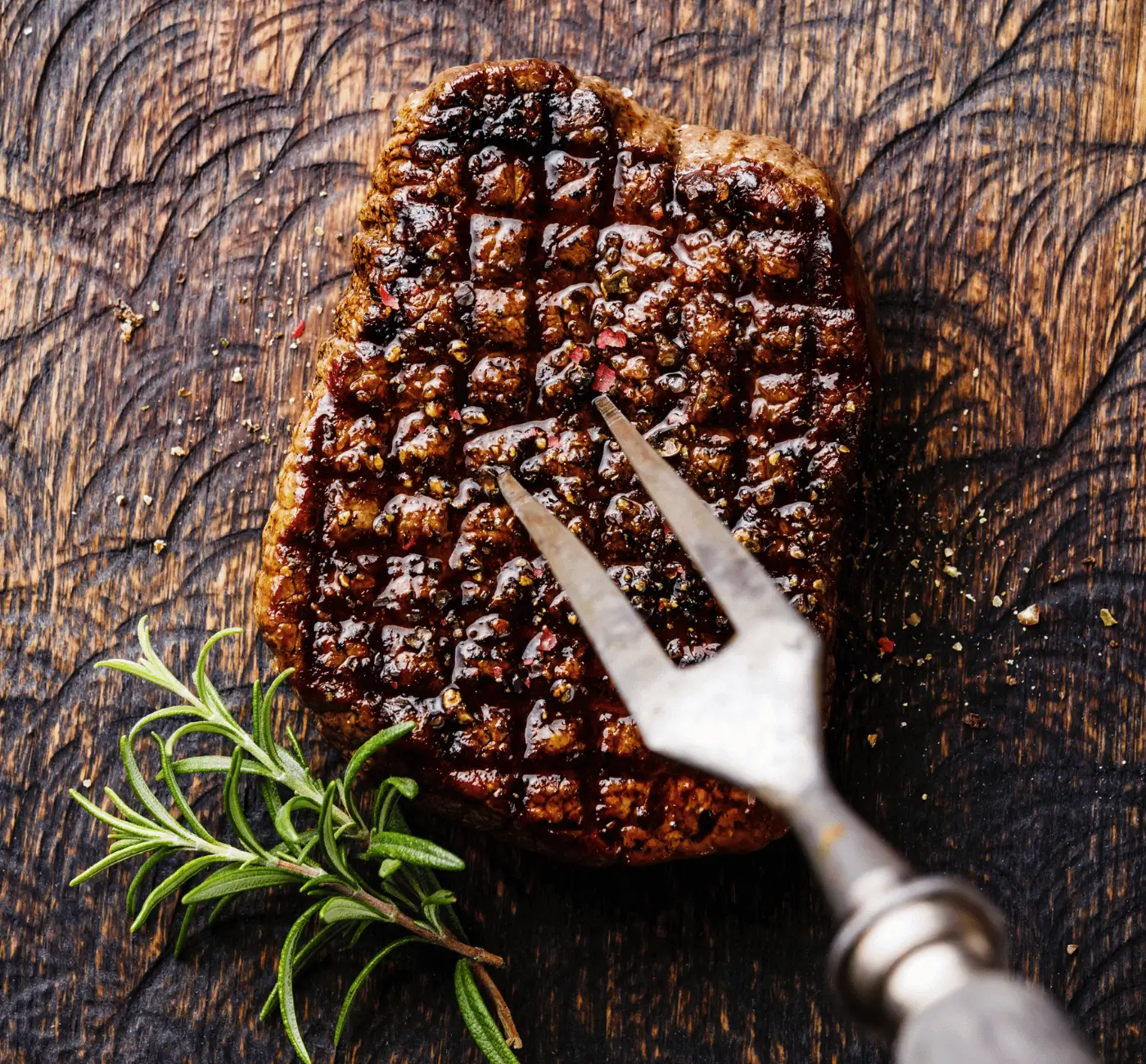
For most people, beef heart and its robust nutrition are relegated to the ‘things lost to history’ cabinet alongside ‘traditional foods’ and ‘nose-to-tail eating.’
Yet new science is beginning to validate the nutritional wisdom of old–beef heart included. Beef heart is unique in the sense that it’s both an organ meat and a muscle meat, with powerful benefits for both your body and your mind, whether you eat it fresh or in a convenient organ meat supplement.

Let’s take a closer look at what makes beef heart’s nutritional benefits so special.
Beef heart is simply the prepared heart of a cow. Much to the surprise of modern eaters, beef heart is completely edible. When prepared right, it can even be pretty tasty, especially when compared to other organ meats.
Heart was a favorite food of many traditional cultures, including more than a few native American tribes. [1] Modern nutritional analysis reveals the reason for beef heart’s historic reverence: it is rich in B vitamins, coenzyme Q10, and many other bioavailable nutrients.

Beef heart nutrition entails robust levels of zinc, iron, selenium. It is also a great source of vitamin B2, vitamin B6, and vitamin B12. [2]
In this section, we’ll divide beef heart’s nutrition highlights into two categories: macronutrients and micronutrients.

Beef heart is a complete protein: it contains all 9 essential amino acids. This balanced amino acid profile makes beef heart a truly satiating food. [3]
3 ounces of beef heart contains 24.2 grams of protein, which is more than enough to ensure muscle synthesis and brain health.
Beef heart contains only trace amounts of carbohydrates. A 3-ounce serving contains only 0.1 grams of carbs. In other words, heart is a perfect addition to your keto or carnivore diet.
Beef heart is lower in fat than many other cuts of meat. This isn’t necessarily a good thing, as fat is an essential nutrient for most people, but for people who have difficulty digesting fat, heart may be in your stars. The fat it does have is comprised of saturated fatty acids, mono- and polyunsaturated fatty acids, and naturally occurring trans fats.

3 ounces of beef heart contains a whopping 383% of your recommended daily value of vitamin B12. That’s almost four times more than your body needs to get by. (Excess B-12 simply gets excreted through the urine, so there’s no reason to avoid it.) [4]
In fact, most people find extra vitamin B12 intake highly energizing. It contributes to mental health, immune function, and normal cell division. [5]
3 ounces of beef heart contains 61% of your recommended daily value for vitamin B2.
This B vitamin contributes to energy generation, healthy vision, and proper cell division. Like B12, it can be used to combat lethargy and fatigue. [6]
A small serving of beef heart contains nearly half your selenium RDA. Selenium is essential for thyroid function and immune function. [7]
Many of this mineral’s other benefits are generalized enough to ‘trickle down’ into other areas. For example, selenium plays an important role in repairing damaged DNA. Ensuring adequate selenium intake might help you avoid cancer and live up to your genetic potential. [8]
Coenzyme Q10 (CoQ10 for short) is an interesting antioxidant also found in large quantities in beef heart. It has antioxidant, anti-aging, antistress effects. [9] (Dr. Kiltz also recommends coenzyme Q10 to women struggling with their fertility.)
Beef heart is rich in newly and yet-to-be-discovered peptides, too. Foremost among these special proteins is dwarf open reading frame peptide, or DWORF. DWORF may improve your heart’s overall function and contraction strength. [10]
Modern nutritional research is finding that nature offers a simplified and holistic solution to nutrition: like supports like.
In other words, the nutrients in any given animal organ support the health of the same organ within the human body. Consuming beef heart is an excellent strategy if you’re trying to support your own heart health.
Beef heart also has energizing, cardioprotective, mood-boosting, and immunoprotective properties. Here’s a closer look at these benefits.
Have you ever taken a vitamin B12 supplement? The energy rush is pretty incredible.
Beef heart provides the same type of energization — in a much more holistic format. The spectrum of B vitamins found in beef heart can help your body turn food into usable energy. B vitamins may also help you improve your body composition by supporting fat burning. [11] [12] And the coenzyme Q10 mentioned earlier can also help improve energy levels. [13]
The B vitamins found in beef heart also have a cardioprotective effect, meaning they may protect against heart disease. [14] B vitamin intake is associated with healthy blood pressure and cholesterol levels, both of which benefit heart health in the long run. [15]
Beef heart’s iron content is yet another thing that makes it cardioprotective. Iron helps deliver oxygen to your tissues; if you’re low in iron, you’ll probably feel sluggish and tired all the time. [16] Just three ounces of beef heart contains over two-thirds of your daily iron requirement.
B vitamins like B12 and folate are known for their ability to boost your outlook and mood. These vitamins are involved in enzymatic reactions that keep your brain and heart clear of homocysteine, a potentially harmful byproduct of protein metabolism. [17]
Studies show that up to 30% of people with depression have overly high homocysteine levels — so upping your B vitamin intake may be a way to reduce depression’s root causes. [18]
The topic of immune health has been at the forefront of public awareness over the past couple of years, and rightfully so.
Immune health is yet another area where beef heart shines: it’s rich in immune-boosting micronutrients like zinc. Zinc has a wide variety of antiviral, immunoprotective properties:

Quality is everything when it comes to organ meats. Animals that were stressed or poorly treated during their lives may have calcified deposits around their organs. While not much research has been done in this area, it’s possible that the heart of a stressed animal is less nutritious than the heart of a happy one.
Research in worms has found that the information present in stressed polyamine proteins can be transferred through ingestion from one creature to the next. If this concept carries over to cows and humans, then eating the organs of highly stressed animals might not be the best choice. [20] [21]
Try to source all your animal products from organic, pasture-raised beef to avoid these potential problems. Even if the conventionally-raised animals don’t convey stress, pasture-raised cows are verifiably higher in healthy fats and important micronutrients. [22]
When consuming beef heart in supplement form, select organ meat supplements from grass-fed pasture-raised New Zealand beef.

Just a little bit of preparatory work transforms beef heart from chewy to truly delicious. Here’s a simple organ meat recipe to help you enjoy beef heart.
Prep time: 10 minutes
Marinating time: 12 hours
Cook time: 15 minutes
When prepared right, beef heart is surprisingly tasty — it’s one of the most ‘regular’ tasting organ meats, in fact.
If you haven’t tried beef heart yet…what are you waiting for?
Here’s a recap of beef heart nutrition highlights:
And here’s a recap of its health benefits:
If you’d like to have higher energy levels, a healthier heart, and better brain and immune function, don’t neglect beef heart. It’s a vital — and surprisingly tasty — part of any keto or carnivore diet.

We’re a global community of seekers, healers, and doers committed to reclaiming health on our own terms. When you join the Kiltz Mighty Tribe (KMT), you’ll gain access to education, support, and collective wisdom.


